Outstanding results in national resource management
The Government considers that preventing and combating waste is an urgent task that needs to be implemented immediately to mobilize and effectively use resources. In 2024, the Government established the Steering Committee for Preventing and Combating Waste; issued Decision No. 1764/QD-TTg on the Comprehensive Program for Practicing Thrift and Combating Waste, along with many directives and telegrams to synchronously implement solutions. Ministries, branches and localities have developed and implemented action plans, creating clear changes in the awareness and actions of officials, civil servants and people.
In the legislative field, the Government submitted to the National Assembly for approval 28 laws, 24 resolutions and commented on 18 draft laws, focusing on perfecting mechanisms and policies to remove difficulties for production and business and promote growth. The Government issued 185 decrees, 329 resolutions, 1,846 decisions, and 47 directives, while ministries and branches issued 104 documents detailing laws and resolutions that will take effect from 2024 and 2025. Regarding the budget, state budget revenue reached VND 2,043 trillion, up 20.1% compared to the estimate, while budget expenditure was estimated at VND 1,830 trillion, saving VND 64,014 billion thanks to cutting unnecessary spending. Public debt is tightly controlled, with public debt/GDP at 34.7%, government debt/GDP at 32.2% and foreign debt/GDP at 31.8%, within the limits allowed by the National Assembly.
Public asset management has also made much progress, with 67,480 road infrastructure assets and 15,460 rural clean water works logged into the National Database on Public Assets, with a total value of VND 3.8 million billion and VND 38,388 billion, respectively. Disbursement of public investment capital reached VND 70,743.08 billion for 9 key transport projects, equivalent to 72.9% of the plan, contributing to the commencement and acceleration of many infrastructure projects. In land management, the Government issued 5 decrees and 8 circulars to implement the 2024 Land Law, putting into operation 4 national land data blocks. However, violations in land and resource management still exist, requiring strict handling.
The work of streamlining the apparatus recorded positive results, with the reduction of 13 departments, 2,613 local division-level organizations, along with 12 branches and 29 divisions under the provincial and district People's Committees. Administrative reform was promoted, with the pilot model of a one-level Public Administration Service Center in 5 localities, creating convenience for people and businesses. In the management of state-owned enterprises, the Government approved the restructuring project of 4 corporations and general companies, and at the same time drafted the Law on Management and Investment of State Capital in Enterprises to improve operational efficiency.
Inspection and examination were strengthened, with 6,673 administrative inspections and 118,983 specialized inspections, detecting economic violations worth VND 157,585 billion and 245 hectares of land, recommending the recovery of VND 85,403 billion and 41 hectares of land, and imposing administrative fines of VND 4,150 billion. These efforts contributed to achieving and exceeding 15/15 socio-economic targets for 2024, reducing the poverty rate to 1.93% and bringing 78% of communes to new rural standards.
The Government emphasizes prioritizing resources for digital transformation, science and technology development, and strengthening inspection and examination. |
Accelerate, break through
The Government has identified 2025 as a pivotal year to complete the 2021-2025 five-year plan, with the target of GDP growth of 7.0-7.5% and GDP per capita reaching 4,900 USD. Decision No. 1719/QD-TTg dated December 31, 2024 promulgating the Comprehensive Program on practicing thrift and combating waste in 2025, sets out 10 key tasks and 7 groups of solutions. The solutions include tightening financial and budgetary discipline, managing loans and effectively using public assets, prioritizing capital for key projects. The Government will continue to streamline the apparatus, promote decentralization and delegation of powers, and review the legal system to overcome shortcomings in areas prone to waste.
The Government emphasized prioritizing resources for digital transformation, science and technology development, and strengthening inspection and examination to recover lost assets. At the same time, it built a culture of thrift and anti-waste in state agencies and encouraged people to practice it in production, business, and consumption. Despite many achievements, the Government acknowledged some limitations, such as the slow progress of housing and land arrangement, public investment disbursement in 30/46 ministries and 26/63 localities lower than the average, and violations in resource management have not been thoroughly handled. These issues will be focused on to overcome to create momentum for sustainable growth in 2025.
Despite many achievements, the Economic and Financial Committee pointed out that the practice of thrift and anti-waste still has limitations. Some ministries and sectors are slow in planning legislation, requesting to withdraw or postpone draft laws and ordinances, or submitting incomplete documents, lacking careful research on the scope of regulation and policy impact. State budget revenue forecasts are not close to reality, leading to a large gap between estimates and reality, while tax arrears have increased compared to 2023. Disbursement of public investment is slow, and transferred resources are still large, causing waste and reducing the efficiency of capital use.
The arrangement and handling of public houses and land has not been promoted in some ministries, sectors and localities, with slow progress in planning and lack of checking the current status. The construction of land databases has not been on schedule and has not met management requirements. Land waste still occurs, with many projects being slow to put into use, agricultural and forestry land being left fallow after inspection, examination and audit. The administrative apparatus is still cumbersome, with many layers, overlapping functions, tasks and responsibilities that are not clear. The streamlining of the apparatus and reduction of intermediate levels still face difficulties, requiring more drastic solutions.
Restructuring of state-owned enterprises, equitization and divestment of state capital have not seen positive changes. Agricultural and forestry companies manage large areas of forest but operate inefficiently, causing waste of resources. To overcome this, the Economic Committee recommends that the Government institutionalize Directive No. 27-CT/TW and the opinion of General Secretary To Lam, urgently complete the institution, and soon amend the Law on Practicing Thrift and Combating Wastefulness. The Government needs to tighten financial discipline, control overspending, overcome limitations in implementing national target programs and public investment, and ensure the progress and quality of projects according to the National Assembly's resolution.
The Committee also recommended accelerating the arrangement of public housing and land, transferring ineffective facilities to localities to serve socio-economic development, and at the same time handling the situation of abandoned land, public housing and welfare facilities. There should be a master plan to effectively use headquarters after streamlining the apparatus, arranging for welfare and health facilities, or timely exploitation. The Government should focus on restructuring state-owned enterprises, especially agricultural and forestry companies, to preserve and develop state capital, and improve production and business efficiency.
Source: https://thoibaonganhang.vn/tao-nen-tang-cho-tang-truong-ben-vung-163368.html


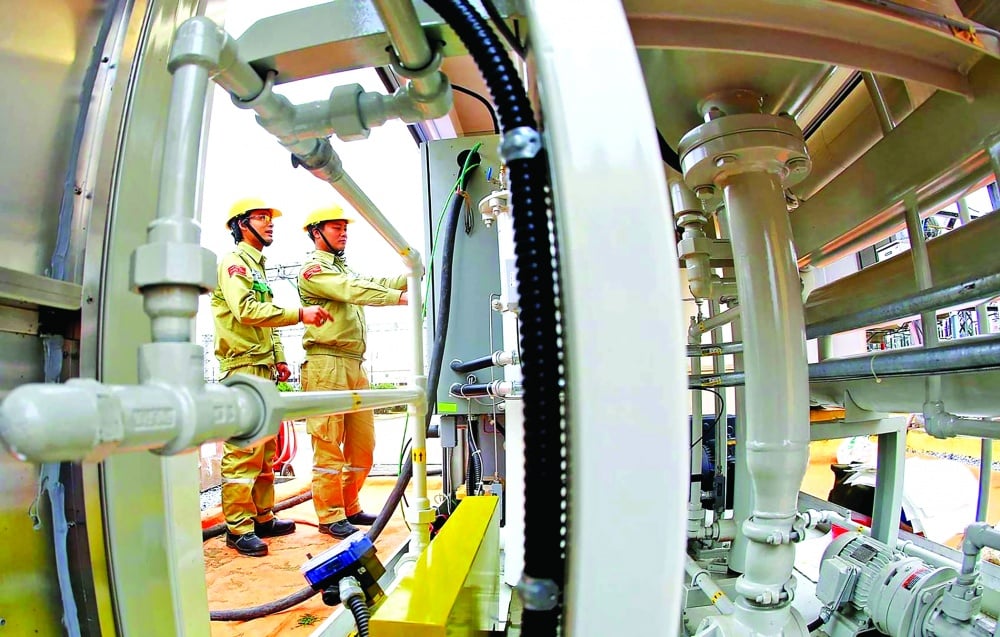
![[Photo] National Assembly Chairman Tran Thanh Man chairs the meeting of the Subcommittee on Documents of the First National Assembly Party Congress](https://vphoto.vietnam.vn/thumb/1200x675/vietnam/resource/IMAGE/2025/5/8/72b19a73d94a4affab411fd8c87f4f8d)
![[Photo] President Luong Cuong presents the decision to appoint Deputy Head of the Office of the President](https://vphoto.vietnam.vn/thumb/1200x675/vietnam/resource/IMAGE/2025/5/8/501f8ee192f3476ab9f7579c57b423ad)

![[Photo] General Secretary concludes visit to Azerbaijan, departs for visit to Russian Federation](https://vphoto.vietnam.vn/thumb/1200x675/vietnam/resource/IMAGE/2025/5/8/7a135ad280314b66917ad278ce0e26fa)
![[Photo] Prime Minister Pham Minh Chinh meets with the Policy Advisory Council on Private Economic Development](https://vphoto.vietnam.vn/thumb/1200x675/vietnam/resource/IMAGE/2025/5/8/387da60b85cc489ab2aed8442fc3b14a)
![[Photo] General Secretary To Lam begins official visit to Russia and attends the 80th Anniversary of Victory over Fascism](https://vphoto.vietnam.vn/thumb/1200x675/vietnam/resource/IMAGE/2025/5/8/5d2566d7f67d4a1e9b88bc677831ec9d)

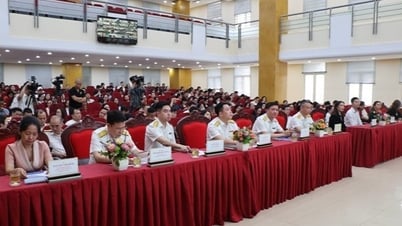


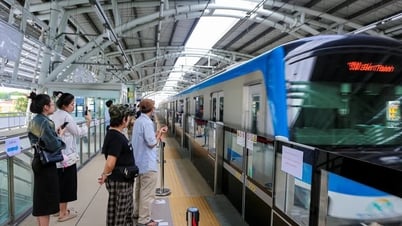





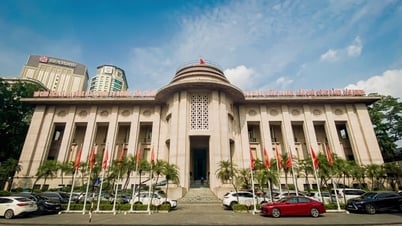
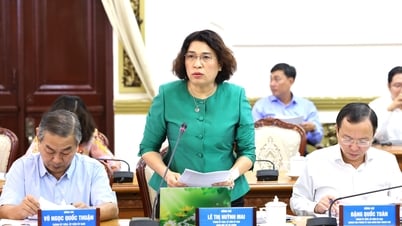


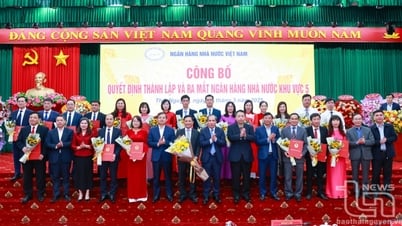


































![[Photo] Prime Minister Pham Minh Chinh talks on the phone with Singaporean Prime Minister Lawrence Wong](https://vphoto.vietnam.vn/thumb/402x226/vietnam/resource/IMAGE/2025/5/8/e2eab082d9bc4fc4a360b28fa0ab94de)































Comment (0)